I can’t get the news of Kosovo’s unilateral declaration of independence out of my mind.
Why were we so quick to recognize Kosovo? What importance does it hold? Is there some sort of latent guilt for the years of Balkan wars where so many were tortured at the hands of the Serbs? (Yes, yes, atrocities occurred on all sides. However, the Croats, the Bosnians, and the Albanians all suffered many, many more deaths — both civilian and military — at the hands of the Serbs. Some of these atrocities occurred in front of UN troops assigned to the protect them.) What would our stance be if other ethnic majorities within areas of other countries — the Kurds in Turkey/Iraq, for example — declared independence? Didn’t the treaties that stopped NATO attacks in Kosovo imply some sort of intent of keeping Serbia together, similar to the federation-style set-up used with Bosnians? I don’t speak from a place of expertise here… I’m just trying to get my head around it.
Moreover, I was really moved by this book and what it means for a civilian population to be targeted and isolated. I’ve been addicted to her for months. I do not have faith in NATO or any other allied group to protect the vulnerable. The genocidal massacres at Srebrenica occurred in front of UN Security forces, who rolled back without once standing in protection of the civilian populace. This happened a year after Rwanda, four years after seeing what the Serb forces did in Vukovar. We’ve shown that we cannot bring ourselves to say the word “genocide” even when we know it is occurring because we’d be obliged to act. It makes me think that the only way to stop genocide from occurring is to help negotiate healing and understanding, not encourage nationalism and independence.
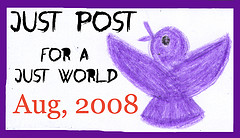
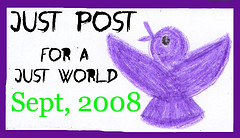
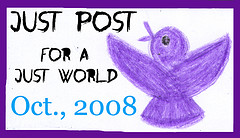


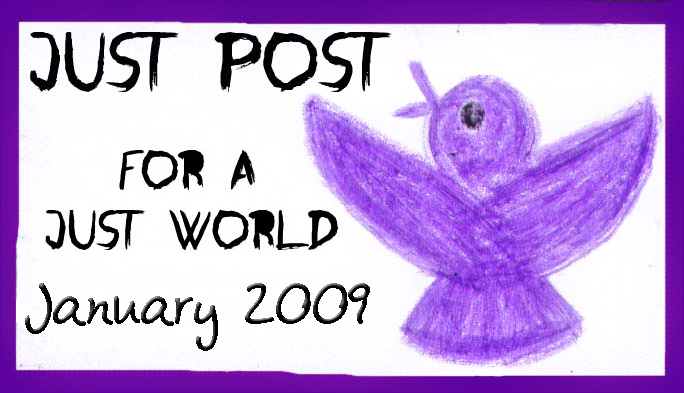
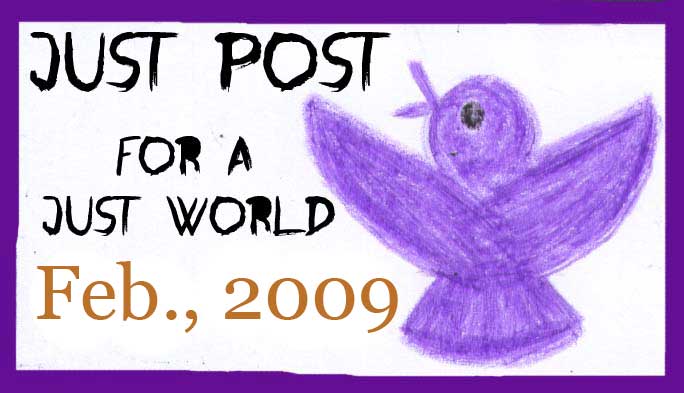








Christoph | 19-Feb-08 at 12:07 am | Permalink
Nothing stops genocide except armed force, unfortunately. Negotiating doesn’t work with cold blooded killers — they are hardened and determined to murder to get what they want. That’s why I blame Bill Clinton for not intervening in Rwanda, and why I blame the US and other powers for not intervening in Sudan, under the mantle of international unity. In the West, we just don’t care about people who are dying unless they fit a certain demographic, unfortunately. And if they have oil we can jack from them in the process of “saving” them, so much the better.
Kosovo is a Muslim nation that’s friendly to us, and that’s good PR. That’s my best guess. Serbia says it won’t recognize Kosovo, but they will eventually. They don’t have a choice. Forget the US, they can’t afford to alienate the EU, not if they want to participate in the global economy to the fullest. I suspect there’ll be a protracted but negotiated solution so everyone involved can save face: the Russians will retain the right to punish and repress their provinces that want to break free, and the Serbs will get some concessions so they don’t feel all booty hurt.
No clue why Kosovo, ethnic pride aside, would want to be independent. What are they going to do for an economy? They’re a small landlocked country. What do they have for natural resources? Do they think Serbia will help them? Do they think Montenegro and Macedonia are going to risk their economic relationships with Serbia to help them? What’s Albania going to do for them? What can they do? And Kosovo is broke. Becoming a source of cheap labor for the EU is not the path to riches for a nation, not to mention, as we know, that migration often breeds hostility towards migrants’ ethnicities. Say hello the world’s newest junior member of the core state-periphery state network. Great article here by The Economist shapes my thinking on this.
http://www.economist.com/world/europe/displaystory.cfm?story_id=10711623
Cold Spaghetti | 19-Feb-08 at 7:24 am | Permalink
I completely agree that armed force is absolutely the only way to stop genocide — we should’ve intervened with armed force in every situation you mentioned, and in the Balkans we did so much much much too late. But now that the violence has stopped (for now?) I feel like we should be looking for ways to prevent it from ever happening again.
I would guess that Kosovo is looking for support from the U.S…?
But is it legal under international law for an entity of people, a population majority, to unilaterly decide to become a separate nation? Does this type of international law even matter? What type of obligation does NATO have to uphold the resolution from 1999, or am I reading too much into that agreement?
Christoph | 21-Feb-08 at 11:00 am | Permalink
Agreed wholeheartedly that the best way to prevent genocide is to find ways to stop it from occurring to begin with.
As for legalities, if I’m not mistaken — and I might be, because this is a very basic understanding — but I think one of the key principles of the whole Westphalian/modern state system is the people’s right to self-determination. So I guess that Kosovo can declare independence. States aren’t necessarily bound to recognize them, though. I guess it’s like free speech in the US — you can say whatever you want, but you have to accept the consequences, too.
The news is saying that the EU and World Bank will have a donor’s conference for Kosovo in June.
Not sure what NATO’s remaining responsibilities are from ’99. I thought they were pretty much there as peacekeepers, don’t know about any further role.